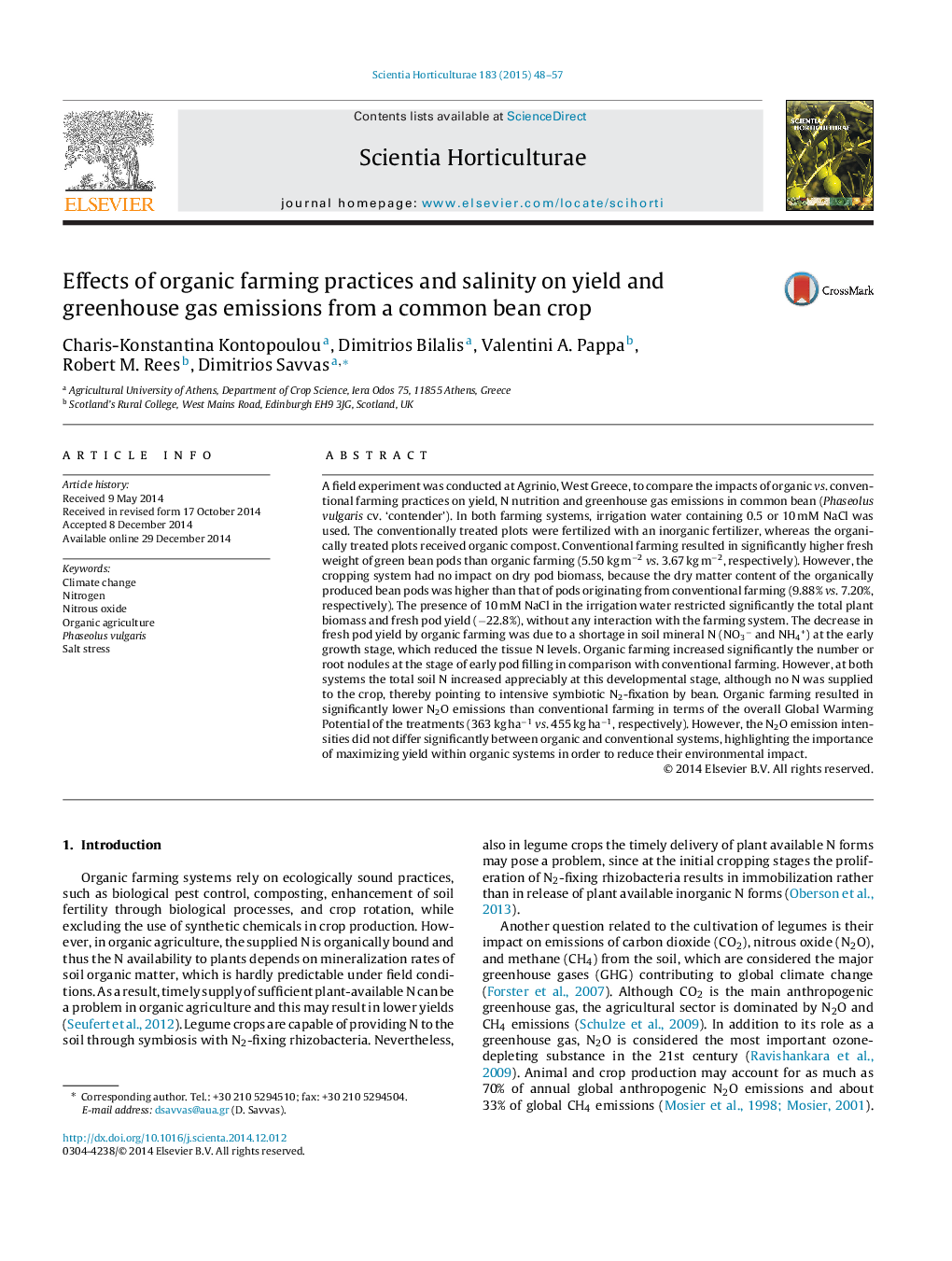| کد مقاله | کد نشریه | سال انتشار | مقاله انگلیسی | نسخه تمام متن |
|---|---|---|---|---|
| 6407119 | 1628815 | 2015 | 10 صفحه PDF | دانلود رایگان |
- Organic farming practices restricted the green bean yield.
- Yield restriction by organic farming was due to low mineral N at early growth stage.
- Organic farming resulted in lower N2O emissions but higher N2O emission intensities.
- Organic farming enhanced root nodulation in bean irrespective of salinity.
A field experiment was conducted at Agrinio, West Greece, to compare the impacts of organic vs. conventional farming practices on yield, N nutrition and greenhouse gas emissions in common bean (Phaseolus vulgaris cv. 'contender'). In both farming systems, irrigation water containing 0.5 or 10 mM NaCl was used. The conventionally treated plots were fertilized with an inorganic fertilizer, whereas the organically treated plots received organic compost. Conventional farming resulted in significantly higher fresh weight of green bean pods than organic farming (5.50 kg mâ2vs. 3.67 kg mâ2, respectively). However, the cropping system had no impact on dry pod biomass, because the dry matter content of the organically produced bean pods was higher than that of pods originating from conventional farming (9.88% vs. 7.20%, respectively). The presence of 10 mM NaCl in the irrigation water restricted significantly the total plant biomass and fresh pod yield (â22.8%), without any interaction with the farming system. The decrease in fresh pod yield by organic farming was due to a shortage in soil mineral N (NO3â and NH4+) at the early growth stage, which reduced the tissue N levels. Organic farming increased significantly the number or root nodules at the stage of early pod filling in comparison with conventional farming. However, at both systems the total soil N increased appreciably at this developmental stage, although no N was supplied to the crop, thereby pointing to intensive symbiotic N2-fixation by bean. Organic farming resulted in significantly lower N2O emissions than conventional farming in terms of the overall Global Warming Potential of the treatments (363 kg haâ1vs. 455 kg haâ1, respectively). However, the N2O emission intensities did not differ significantly between organic and conventional systems, highlighting the importance of maximizing yield within organic systems in order to reduce their environmental impact.
Journal: Scientia Horticulturae - Volume 183, 12 February 2015, Pages 48-57
